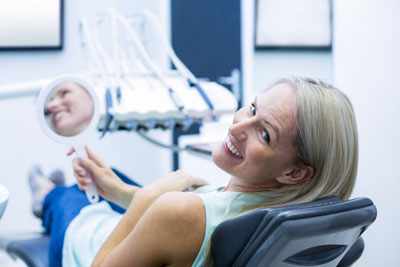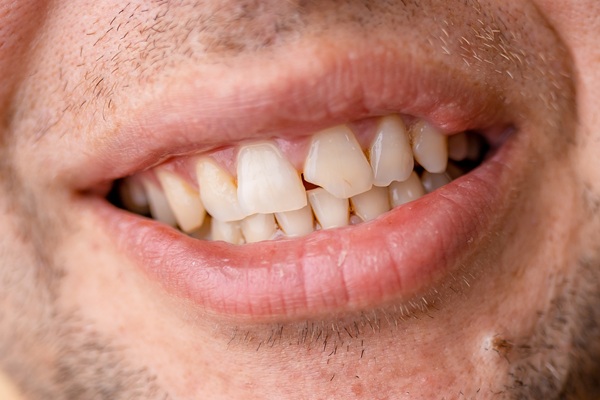Experience Laser Dentistry From Your General Dentist

Professionals in different medical fields, such as general dentists, use lasers. These are highly precise light beams that modify or remove tissues in small quantities. Laser surgery is not restricted to dentistry, but many people had not heard about laser dentistry before undergoing the procedure.
General dentists employ lasers in different procedures related to the oral cavity, either to remove tissue overgrowth, reshape the gums or for teeth whitening. In some cases, laser dentistry is the best technique for children who have dental anxiety.
The advantages of laser dentistry
General dentists opt for laser dentistry because of the unique benefits that ensure the success of many dental procedures, alleviate discomfort and reduce recovery time for patients. This is often because the rate of infection is lower due to the sterilizing power of lasers, reduced loss of blood compared to traditional surgery and the fact that anesthesia is often not necessary. Laser dentistry typically reduces the need for sutures and there is less damage to the gums.
How laser dentistry works
When you visit the dental office for laser dentistry, you will undergo the same procedure as other dentistry appointments such as a cavity filling. The general dentist may administer anesthesia, but in lower doses, and patients with dental anxiety may need to be sedated too.
During the treatment, you will not experience any vibration or pain from the laser, unlike the drill. Any bleeding will be cleaned just as usual. Your mouth will be held ajar while the dentist uses the laser to treat the problem.
Types of lasers in dentistry
The two major types of lasers used during laser treatments are soft tissue and hard tissue lasers. Each laser has varying wavelengths that make it ideal for cutting through a particular kind of tissue. This is effective because different tissues absorb light wavelengths in different ways. By modifying the light’s wavelength (and sometimes pulse), scientists have discovered how to develop lasers with the light wavelength specific to the mouth tissues.
Hard tissue lasers
This type is mainly used for the teeth. One of the laser’s wavelengths can penetrate water and bone, especially the calcium phosphate present in the bones and teeth. These lasers make accurate cuts on the teeth, removing tiny proportions to shape or prepare the teeth for dental procedures. Hard tissue lasers help to detect cavities, treat tooth sensitivity and prepare the tooth for cavity fillings.
Soft tissue lasers
Soft tissue lasers have a light wavelength absorbable by water and hemoglobin. Hemoglobin is a blood molecule and makes soft tissue lasers appropriate for gum procedures.
These lasers are perfect for lacerating soft tissues and sealing the open blood vessels concurrently. This reduces the rate of bleeding during a laser dentistry procedure and improves the healing and recovery period. Soft tissue lasers are often used for cosmetic treatments because the results are instant. Usage includes crown lengthening, gum reshaping, eliminating oral tissue folds caused by dentures and treating limited tongue movement.
Final note
If you are undergoing laser gum surgery or hard tissue treatment, you can expect a convenient procedure and a faster recovery period with laser dentistry. Laser dentistry offers an easy way to treat many oral issues, whether severe or merely cosmetic. Talk to your general dentist about it the next time you need a dental procedure.
Request an appointment here: https://www.lilburnfamilydentistry.com or call Lilburn Family Dentistry at (770) 800-0178 for an appointment in our Lilburn office.
Check out what others are saying about our services on Yelp: Read our Yelp reviews.
Recent Posts
Dental crowns are restorations that can address a range of dental issues, from severely damaged teeth to protecting a tooth after a root canal. They help preserve oral health and enhance a smile's appearance. In addition to being versatile, they are available in different materials, which can be helpful for individuals who want options.Dental crowns…
A broken tooth is a common dental issue that can happen for many reasons, such as accidents, biting into something hard, or untreated tooth decay. Whether a dentist can save a broken tooth or needs to remove it depends on how severe the damage is and how quickly patients seek treatment. While modern dental techniques…
Dental crowns are a popular dental restoration, effectively preserving and enhancing the function of damaged or weakened teeth. These custom-made caps are designed to fit over the existing tooth, providing both structural support and improvements in your smile's appearance. However, not all dental crowns are created equal. The type of dental crown you choose can…
Your dentist can help determine if you need dental crowns. There are many reasons for getting these restorations. The main goal is always to restore the tooth and enhance its functions. Here are the signs you may need dental crowns soon.Losing at least one tooth can cause more dental problems. It can lead to dental…


